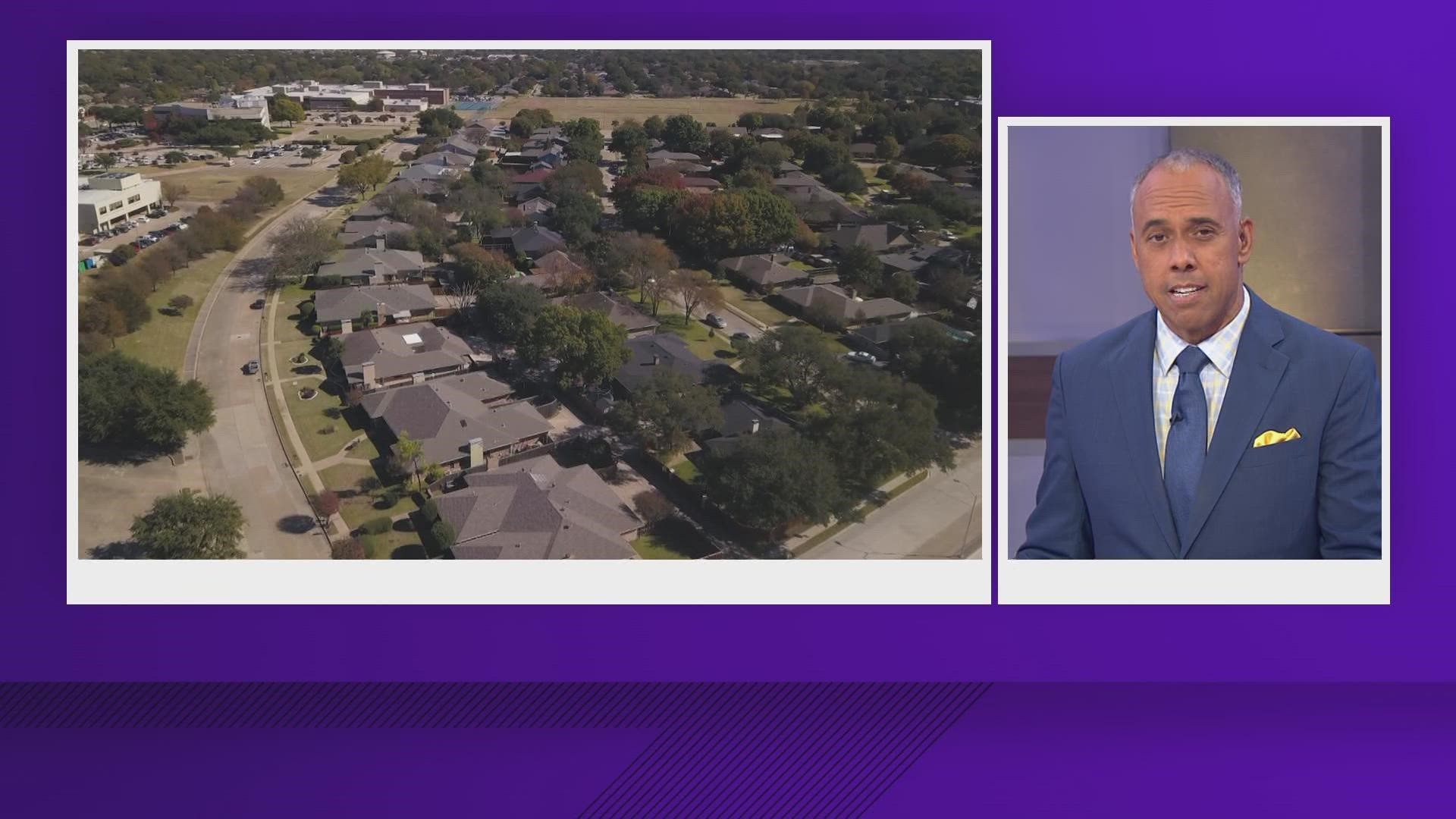DALLAS — ead this story and more North Texas business news from our partners at the Dallas Business Journal
The number of real estate agents who sold one or more homes last month dropped sharply in Dallas — and even more in Austin — in another sign of the rapidly cooling housing market in Texas.
The number of active agents in Dallas fell to 756 in September from 947 in August, according to AgentStory, a tech company that publishes housing sales profiles for real estate agents. The active agent count in Austin dropped to 389 in September from 810 in August. Both markets had well over 1,000 active agents in March, April and May, before the number started to slide.
Active agents are defined as those who sell at least one house in a calendar month.
At the request of the Business Journal, AgentStory pulled aggregate trend data on real estate agents in Texas’ busiest housing markets. The company typically publishes data on individual agent performance to aid consumers, but the data shared with the Business Journal is an aggregate view.
In Houston, the state’s biggest city, the active agent count dropped to 1,674 in September from 2,003 in August. Houston peaked at 2,450 agents active agents in April.
StoryAgent’s counts provided to the Business Journal are for individual cities, not metro areas.
“The rate of deceleration in Texas is profound,” said Jon Cardella, co-founder and CEO of AgentStory, in an interview with the Business Journal. “Volume is falling through the floor. (Deal) volume is going down, as you'd expect, because of the fact that rates are so high right now relative to the last few years."
New real estate agents streamed into the industry over the past two years as the pandemic fueled a housing market boom.
The U.S. had more real estate agents in 2021 than ever before, according to data from the National Association of Realtors, as the so-called Great Resignation spurred many of those leaving other jobs to try their hand at selling houses. NAR numbers for this year are not yet available.
Membership in the National Association of Realtors grew to 1.56 million at the end of 2021, up from 1.48 million at year-end 2020, as housing demand surged. The typical NAR member had a higher sales volume ($2.6 million vs. $2.1 million) and more transactions (12 vs. 10) in 2021 compared to 2020.
The median gross income for Realtors was $54,300 in 2021, up from $43,330 in 2020, according to NAR. Realtors with 16 years experience or more had a median gross income of $85,000, an increase from $75,000 the previous year, as income typically correlates with experience.
Cardella said agents who jumped into residential real estate when the housing market soared are unlikely to make an abrupt exit because of the downturn.
“There’s some correlation, but I think most of them will stick around and just keep paying fees (for things like NAR membership and Multiple Listing Service database access) and waiting for the market to pick up,” Cardella said. “They get paid enough doing just a few transactions.”
With average home sales prices of around $400,000 and commissions averaging 5.5%, agents can make a decent living by selling three or four homes a year, and get paid handsomely if they average one sale a month, Cardella said.
It would take a severe, prolonged downturn for agents to wash out in large numbers, he said.
"When annual dues come up next year, maybe you'll see people start to drop out," he said. "They'll say, 'I don't want to pay the thousands of dollars to stay in.' But it takes at least a year for there to be a purge. You need a nuclear winter basically like we had after 2008 or something. Most folks are saying this is going to be 12 to 18 months, so obviously these folks are going to hang around and wait for it."
In Dallas-Fort Worth, home sales are falling while home prices are plateauing.
Home sales across DFW were down roughly 14% year over year in August, according to the latest Re/Max National Housing Report. The number of houses sold across DFW totaled 9,182 in August compared to 10,635 homes in August 2021.
As a result of sharply higher mortgage rates, housing demand has fallen statewide, and homes are sitting on the market longer, according to a report by the Texas Real Estate Research Center at Texas A&M University.
“Overall home sales have been in freefall since around April,” according to the report. “At the current rate, 2022 sales will likely fall short of 2021.”

